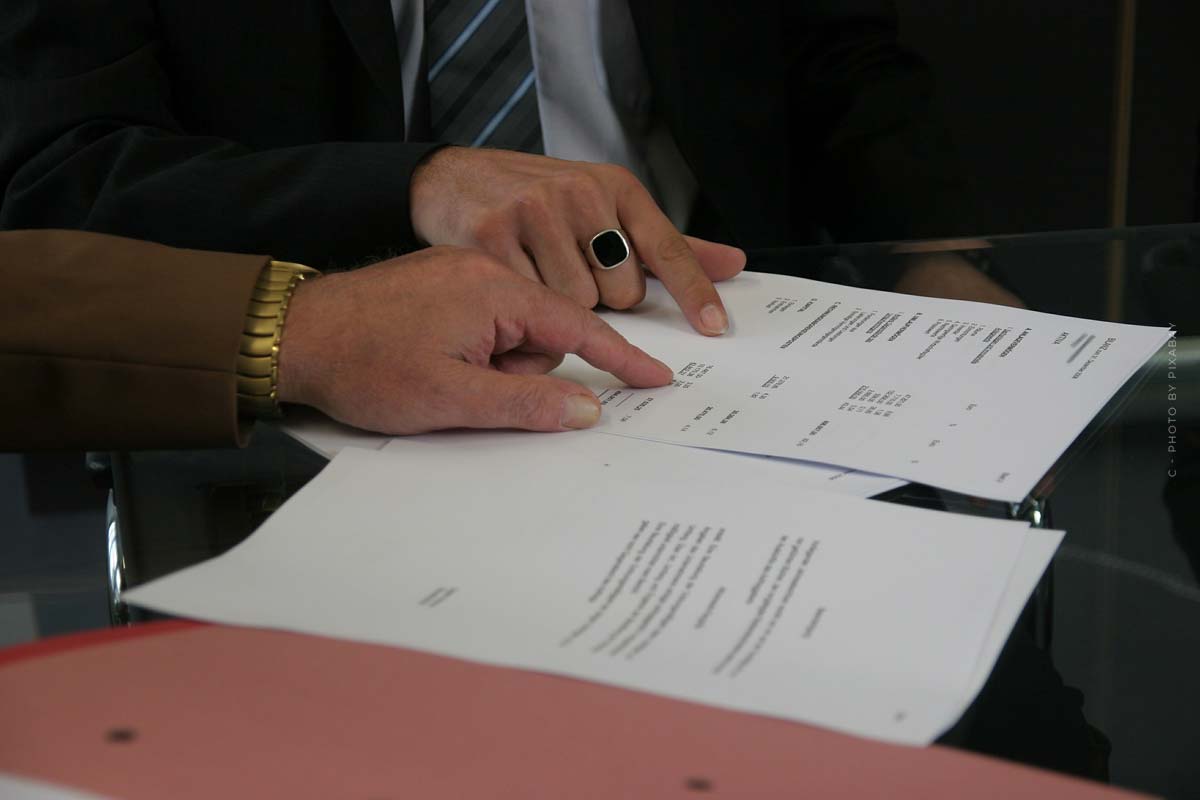Selling an apartment in a community of heirs: One of them does not want to sell – What to do?
Selling an apartment in the case of a community of heirs – When the deceased leaves a house or a condominium, the heirs are faced with the question of what to do with the property. Often, they decide to sell it. However, selling a home through a community of heirs can be a complex matter that presents numerous challenges. Find out here how the sale of a jointly inherited apartment works, what you need to consider regarding the certificate of inheritance and what to do in case of disputes and conflicts within the community of heirs. Also: a summary of your rights and obligations.
Rights and obligations of the community of owners
A community of heirs arises when several persons become co-heirs to the estate of a deceased person. As members of the community of heirs, the co-heirs have various rights and obligations.
Rights: disclaim inheritance, sell inheritance & dissolution
The rights include, among others, the right to use the inheritance and the right to sell the inheritance share. Each co-heir has the right to sell his or her share of the inheritance, whereby the other co-heirs have a right of first refusal. There is also the right to dissolve the community of heirs if the community of heirs no longer functions or there is a dispute about the inher itance.
In addition, the co-heirs are permitted to disclaim the inheritance under certain circumstances if they do not wish to accept it or if this would mean that they would have to assume the decedent’s debts. The disclaimer must be made within a certain period.
The rights at a glance:
- Reject inheritance
- Right to use
- Right to sell the inheritance
- Right of first refusal
- Right to dissolve the co-ownership community
Duties: Rental agreements, management & Co.
The duties of the co-heirs include, among other things, the assumption of tenancy agreements if the decedent was a tenant of an apartment or house at the time of his or her death. The co-heirs also have an administrative duty towards the inheritance. They must manage the inheritance properly, maintain it and, if necessary, carry out maintenance measures.
Another important duty of the co-heirs is the payment of the estate’s liabilities. The co-heirs are jointly liable for the decedent’s liabilities and must ensure that these are paid. In doing so, they must also take into account the taxes of the inheritance.
Your duties summarized:
- Assumption of leases
- Management duty
- Payment of the estate liabilities
Prerequisite for apartment sale
In order to sell an apartment from a community of heirs, all heirs must therefore agree to the sale. A sale can only take place jointly and by mutual agreement. This requires close cooperation and agreement between the heirs to ensure smooth administration of the inheritance.
Heirs must agree on the sale of the apartment
However, in practice, it can often be difficult to agree on a joint sale. There are often emotions and memories associated with the property, which can make the issue sensitive for some heirs.
It is therefore not uncommon that individual heirs do not yet want to or cannot agree to a sale. In some cases, this can lead to disagreements and disputes regarding the inheritance. We will now take a closer look at the options available.
Dispute & conflict in the community of heirs
If the community of heirs disagrees on the sale of the apartment, it may be difficult to find an amicable solution. If all heirs refuse their consent to the sale, the property cannot be sold.
In this case, there are various ways in which the community of heirs can proceed.
One possibility is that a single co-heir pays off the other co-heirs and thus becomes the sole owner of the property. If a co-heir wishes to pay off the other co-heirs, the value of the property and the shares of the co-heirs must first be determined. An expert or surveyor can be consulted for this purpose. Then the share of each co-heir is calculated on the basis of the value of the property. The co-heir who wishes to pay out the other co-heirs must then pay out the corresponding share to the other co-heirs in order to acquire their shares in the property.
This is how the payment of an inheritance share works:
- Determination of the real estate value
- Calculation of the share of inheritance
- Payment to co-heirs is made
However, it may happen that the other heirs do not agree or are unable to acquire the selling heir’s share. In this case, the selling heir can sell the share to a third party. The prerequisite for this is that the co-heirs have been granted a two-month right of first refusal and that the sale of the inherited share is only possible as a whole. Therefore, if you decide to sell the part of your inheritance, this refers not only to the apartment, but also to the rest of the inheritance.
Partition auction by district court
The partition auction in the community of heirs by the district court is usually the last resort. If the heirs do not agree, an heir can apply for a partition auction. The district court will then auction off the property in order to subsequently divide the proceeds among the co-heirs. However, this route is often associated with high costs and usually results in significantly lower proceeds than a private sale.
The partition auction at a glance:
- Last resort in case of dispute
- Settlement by local court
- Division of the proceeds between the heirs
- Disadvantage: High cost & low purchase price

Procedure: Sell inherited apartment
When several heirs have inherited an apartment and decide to sell it, they must follow certain steps in order to carry out the sale in a legally correct manner. This requires good planning and coordination within the community of heirs, as well as the involvement of an experienced notary to ensure that the sales process runs smoothly.
Here are the most important points in advance:
- Consent to sale by entire community of heirs
- Marketing of the property
- Preparation of the purchase contract at the notary
- Payment of the purchase price and settlement
Approval for sale
First, the community of heirs must agree that the apartment is to be sold. All heirs must agree to this. Once an agreement has been reached, a joint resolution must be passed that regulates all aspects of the sale, such as the sale price, the division of the proceeds among the heirs and who will carry out the sale.
Marketing of the property
After the community of heirs has decided to sell the apartment, the property must be offered on the market. For this purpose, a real estate agent can be hired to evaluate the apartment, prepare real estate exposés and take over the marketing. Alternatively, the heirs can sell the apartment themselves by placing advertisements or using online platforms.
Preparation of the purchase contract at the notary
Once a buyer has been found, a notary appointment must be arranged in which the purchase contract, conveyance and land register amendment are carried out. The purchase contract regulates all details of the sale, such as the purchase price, the time of transfer of ownership and all other conditions. The conveyance is the formal declaration by the seller that he is transferring ownership of the property to the buyer. The land register amendment is the registration of the buyer as the new owner of the apartment in the land register.
Payment of the purchase price and settlement
After all formalities have been completed, the buyer must pay the purchase price. As soon as the purchase price is received, the land register change is carried out and the buyer is registered as the new owner of the apartment.
Applying for a certificate of inheritance: This is what matters
In the course of the sales process, the heirs must provide proof that they own the inherited house. Often, a certificate of inheritance is required for this, as the deceased owner is still registered as the owner in the land register. The certificate of inheritance can be applied for at the probate court, but it is not necessary in every case. Alternatively, succession can also be proven by a European certificate of probate or a disposition of property upon death in accordance with Section 35 (1) GBO, provided this is contained in a public document (e.g. a notarial will) and the record of the opening of the disposition is submitted.
Land register registration in the event of a speedy sale
It is advisable for the heirs to have their ownership position entered in the land register before the sale, if necessary, as the land register becomes incorrect after the death of the testator. The heirs are generally obliged to correct the land register and enter them as the new owners. This can be particularly important if the sale takes place years later. In this case, the land register correction should be made as soon as possible and at the latest within two years of the inheritance. The process is usually free of charge within this period.
No transcription necessary in case of later sale
However, if the house sale takes place promptly after the death of the decedent, a land register adjustment is not normally required. In this case, ownership can be proven, for example, by presenting the certificate of inheritance and the buyer can be entered directly in the land register.
The most important things summarized:
- Certificate of inheritance proves new ownership of the apartment
- Alternative: Proof by European Certificate of Succession
- Community of heirs must register as new owners
- Exception: sale takes place shortly after the inheritance takes place
Conclusion: Sale of apartments of a community of heirs
In summary, a sale of an apartment by a community of heirs can be a complex process. For this reason, it is especially important that you and your co-heirs are familiar with your rights and obligations. After the community of heirs has agreed on the sale, the heirs must prove their ownership of the inherited apartment. A certificate of inheritance can be requested for this purpose, but there are also alternative means of proof such as the European certificate of inheritance or a disposition of property upon death. It may also make sense to correct the ownership position in the land register in order to avoid problems in the event of a subsequent sale.

















